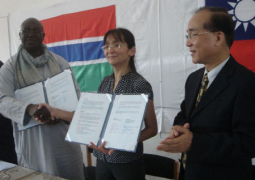Today May 3rd marks World Press Freedom Day, themed "Freedom of Information - the Right to Know."
Going by the theme for this year, it offers us an occasion to remember the importance of our right to know what really concerns us.
Freedom of Information is the principle that organisations and governments have a duty to share or provide ready access to information they hold, to anyone who wants it, based on the public's right to be informed.
The right to know is essential for upholding other basic rights, for furthering transparency, justice and development. It worth saying that freedom of expression is a catalyst for a democratic dispensation.
Obstacles in the way of our right to know take many forms, from draconian media laws, lack of resources and inadequate infrastructure to deliberate obstruction.
Too many journalists in the world exercise their profession in an environment where restrictions on information is the order of the day, coupled with harassment, intimidation or even physical assault meted out on them.
For instance, according to UNESCO, last year alone some 77 journalists were killed across the globe, most of whom were not war casualties but local reporters covering local stories.
While we commemorate this important day, it's good to remember those whom it is too late to help; to honour the journalists who paid with their lives for our right to know and those jailed in the execution of their work.
However, it's significant to say that despite all these problems significant strides are unfolding all over the world regarding press freedom.
More and more countries around the world are adopting freedom of information legislation.
This makes it easier to scrutinise government actions, and it reinforces public accountability.
Meanwhile, faster and cheaper technology means that more people in the world have ready access to information from outside their immediate environment than ever before.
Now is the time for us to seize this opportunity on these advances, by strengthening institutions, by providing necessary training for information professionals, by fostering greater openness within our public sectors and greater awareness among the public.
Obstacles to the right to know do not necessarily stem from the lack of capacity, but the greatest challenge of all is the shift from a culture of silence among people.
An FOI law is a key component of an enabling environment for the news media, which are undermined if they cannot have access to government-held information.
On the other hand, even with an FOI law, public right to know cannot be effective without an independent, free press to disseminate information.
In The Gambia, the 1997 Constitution guarantees the freedom of expression and we must observe and uphold this constitutional provision.
We need a level playing field just like our colleagues in other parts of the world to enable us perform our national obligation as journalists effectively and professionally.
Meanwhile, we renew our call on the government to open a new chapter in dealing with the private media since we are partners in development.
We want you to revive the investigation into the December 2004 brutal killing of Deyda Hydara, the co-proprietor of The Point, and June 2006 disappearance of the Daily Observer's Chief Ebrima Manneh.
"Freedom of expression is the matrix, the indispensable condition of nearly every other form of freedom."
Benjamin Cardozo



